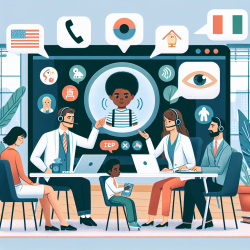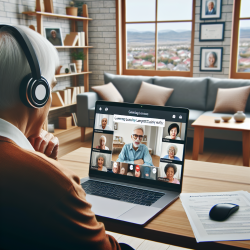As a speech therapist, you know that Individualized Education Program (IEP) planning and meetings can be complex and challenging. But what if we told you there's a way to make them more effective and less stressful? At TinyEYE, we specialize in providing online therapy services to schools, and we have some insider tips to share with you!
Curious? You should be! Here are some key strategies to ensure your IEP meetings are successful and your students get the most out of their speech therapy sessions:
1. Preparation is Key
Before you even step into the IEP meeting, make sure you are well-prepared. This includes:
- Reviewing the student's current IEP and progress reports
- Gathering input from teachers, parents, and other specialists
- Setting clear goals and objectives for the upcoming year
By having all the necessary information at your fingertips, you can ensure that the meeting runs smoothly and efficiently.
2. Foster Open Communication
IEP meetings should be a collaborative effort. Encourage open communication between all team members, including parents. This ensures that everyone is on the same page and working towards the same goals.
At TinyEYE, we use online platforms that facilitate real-time communication, making it easier for everyone to participate, even if they can't be there in person.
3. Utilize Technology
Technology can be a game-changer in IEP planning and meetings. Online therapy services like those provided by TinyEYE can offer:
- Flexible scheduling options
- Access to a wide range of resources and tools
- Real-time data tracking and reporting
These features can help you tailor your speech therapy sessions to meet the unique needs of each student, including those with autism.
4. Focus on the Student
At the end of the day, the student is the most important person in the IEP meeting. Make sure their voice is heard and their needs are prioritized. This includes:
- Setting realistic and achievable goals
- Providing individualized support and accommodations
- Monitoring progress and making adjustments as needed
By keeping the student at the center of the discussion, you can ensure that the IEP is truly individualized and effective.
5. Follow Up and Follow Through
IEP meetings are just the beginning. It's important to follow up on the goals and objectives set during the meeting and make any necessary adjustments along the way. Regular check-ins and progress reports can help ensure that the student is making the expected progress.
At TinyEYE, we provide ongoing support and resources to help you stay on track and achieve your goals.
Ready to take the next step? Contact TinyEYE today to learn more about how our online therapy services can help you streamline your IEP planning and meetings, and provide the best possible support for your students.










